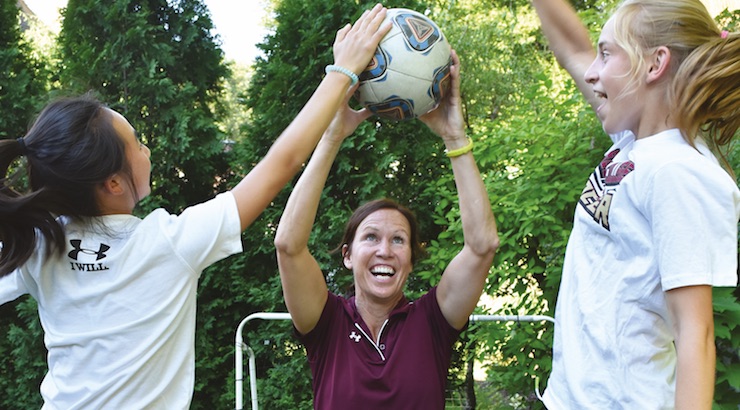SOCCER LOVERS BOOK REVIEW: How to Coach Girls by Mia Wenjen and Alison Foley
Insightful – Real – Easy to Read.
Published by Audrey Press — On Sale: Now
Did you know that 70% of all kids quit organized sports by the age of 13, with girls quitting at 6x the rate of boys?
Everyone says boys and girls are different but few people could concisely explain the differences and the best ways to coach one gender over another — until Mia Wenjen and Alison Foley got together to write How to Coach Girls, a revolutionary book on coaching female youth soccer players. Revolutionary because it is simple, logical, smart and it works.
This book is an excellent read and insightful for youth soccer coaches as well as parents. We recommend How to Coach Girls highly — if everyone read this book, more kids would stay in the beautiful game and become lifelong soccer fans. Link for book on Amazon.
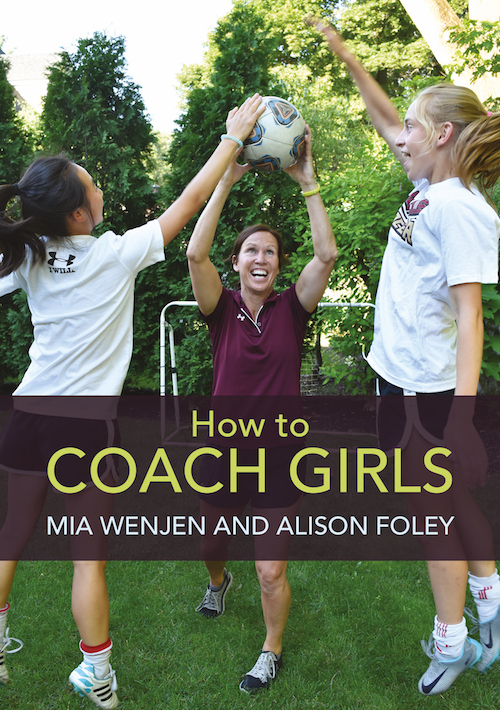
Alison Foley is the Boston College Women’s Soccer Head Coach. Her team’s success has led them to the NCAA Final Four and Final Eight during 13 consecutive playoff appearances. In her 20+ year career, she has coached many national team level players. She also coaches youth soccer and has a 15-year-old soccer playing daughter.
Mia Wenjen is a successful entrepreneur who co-founded Aquent (originally called MacTemps) in 1986 with two friends as a dorm room entrepreneur at Harvard University. Her business placed #12 on the Inc. 500 list for Fastest Growing Private Company.
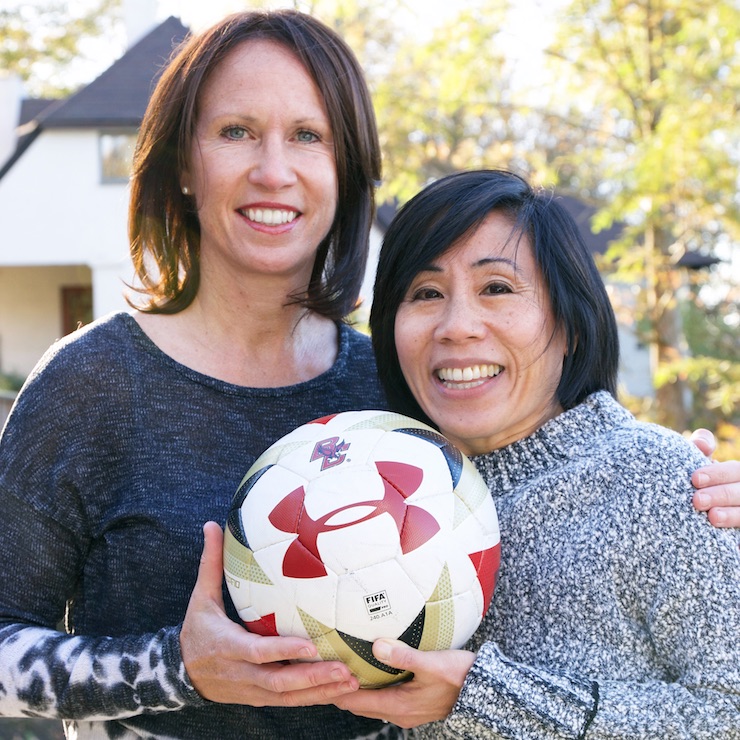
How to Coach Girls explains the differences between girls and boys and places an emphasis on keeping players in the game. With a focus on keeping the fun in the game, the book spans topics ranging from Developing Team Chemistry to Coaching Your Own Daughter.
The open, honest and frank style of writing makes otherwise difficult topics easy to approach. With simple recommendations for practical solutions, How to Coach Girls includes pre-season planning tips as well as a Code of Conduct for players AND one for parents.
SoccerToday’s Editor in Chief Diane Scavuzzo interviewed Alison Foley on what we need to change to keep kids in the game.
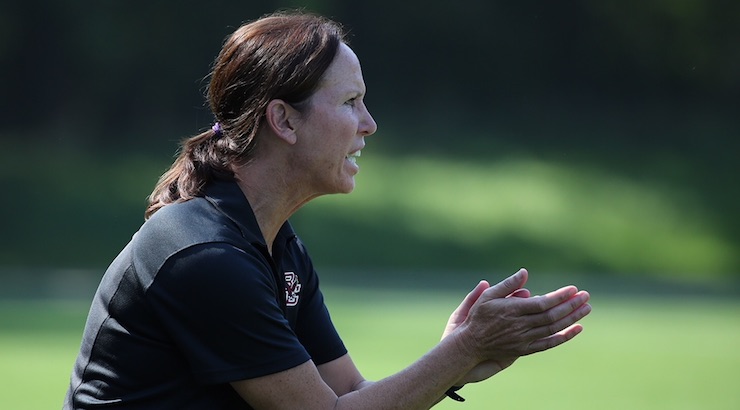
Diane Scavuzzo: What do you think is the biggest challenge coaching girls youth soccer?
Alison Foley: The biggest challenge, really is two-fold — it is understanding team dynamics, and how important that is for a girls’ teams. And, the second challenge is making a fully inclusive and engaging team environment.
One of the disturbing facts is this ratio of 70% of kids stop playing any type of sport by the age of fourteen, and that’s boys or girls, but girls drop out at six times the rate of boys.
Diane Scavuzzo: Where did you get that statistic from?
Alison Foley: It’s a great stat from the National Alliance of Youth Sports.
Mia, my co-author, brought this statistic to me and we both thought, “Okay, let’s take a look at this. Let’s see what we can do, and let’s talk to a few more people and see what helps.”
Diane Scavuzzo: You are a top-ranked Divison I women’s college coach?
Alison Foley: Yes, I’m the Boston College Women’s head coach, but I’m also a youth coaching director at the South Shore Select Soccer Club in Hingham, Massachusetts, and I have a 15-year-old daughter, so I have it all around me.
Diane: You’re living this in three ways. Women’s and girl’s soccer is truly multi-dimensional for you.
Alison Foley: Exactly.
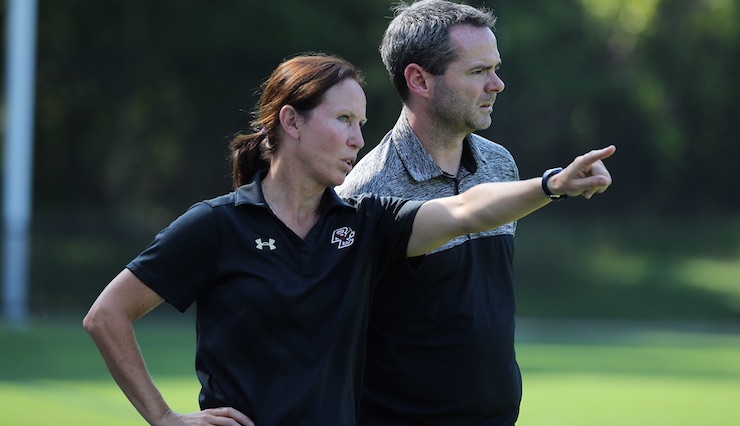
Diane Scavuzzo: So when you look at youth soccer today and you look at your college roster, what is the best way to develop young girls today so that they can grow up and help you have the best soccer team ever?
Alison Foley: I think we have to be careful of burnout — that’s one of the biggest things our youth today are struggling with. We have youth sports becoming so specialized and at such a young age. Players who are eight years old, nine years old, and ten years old, are starting to specialize in one sport, and that’s really too young, in my opinion. Any sport can become monotonous — it becomes the same old thing and a lot of times, it’s the same coaches and the same players.
So I’m a big fan of multi-sport athletes, certainly up until high school.
Now, once you get into high school, there might be some level of specialization but it is important to not have players do too much at a young age, so they still have an appetite for the sport when they come to us at college!
We’ve seen some of the multi-sport athletes be our best college players because they have an appetite for the game and they’re not burnt out. They’re ready to give it their all.
Coaches need to be good with their X’s and O’s as well as motivating players and promoting their self-esteem. Coaches can make a player keep their love and desire because they’re passionate leaders.
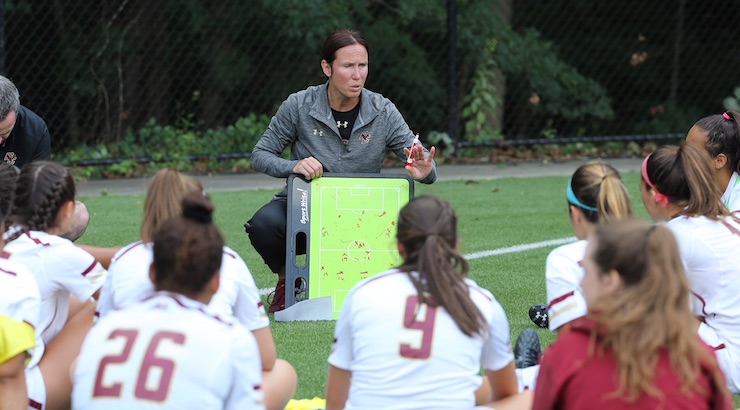
Diane Scavuzzo: Do you think this is a good book for parents to read as well as coaches? You have a Parent Code of Conduct in the book.
Alison Foley: Absolutely. Parents are a big part of solving the issue of players leaving the game. They add a lot of pressure. You know, obviously, I do this for a living, and my daughter’s a pretty competitive soccer player at 15-years-old and people say, “You’re so quiet on the sidelines. I can’t believe…”
I think, “I’m paying the guy across the line a lot of money to coach my daughter. It’s not my job to coach.”
Diane Scavuzzo: In the book, How to Coach Girls, you talk about how you focus on the players who are struggling, not necessarily the players who are excelling in practice, allowing the really elite players to practice on their own more once you’ve set up drill. You say that working with the intermediate players or those who need to improve helps you keep retention. Most coaches focus on the players who are doing best and ignore the players that are struggling ….
Alison Foley: I think coaches do their best coaching with the bottom half of their group, whether it’s their team, a clinic, a camp, because those are the kids that will lose interest quickly because they’re not starting or they’re not getting the headlines — or they’re not the most popular player because they’re not the best.
As a coach, give them more of yourself and more of your time to the players who are struggling.
This is the real challenge in coaching youth soccer.
The top group, they’re going to be great, they’re going to carry on. It’s the bottom group that needs the actual coaching, but more so needs the nurturing and the feeling that you believe in them — and the feeling that if they keep working hard, they will be successful and then hopefully you don’t see that bottom group leaving the sport.
You see them say to themselves, “Okay, somebody believes in me. Somebody’s going to work with me individually.” And that attention is really what helps them stay engaged in the sport, hopefully improving their skills and continuing to play the game.
Diane Scavuzzo: So this is more a focus on developing life-long soccer fans and perhaps late bloomers than just focusing on winning the youth soccer game on the weekend?
Alison Foley: Exactly. 100% correct.

